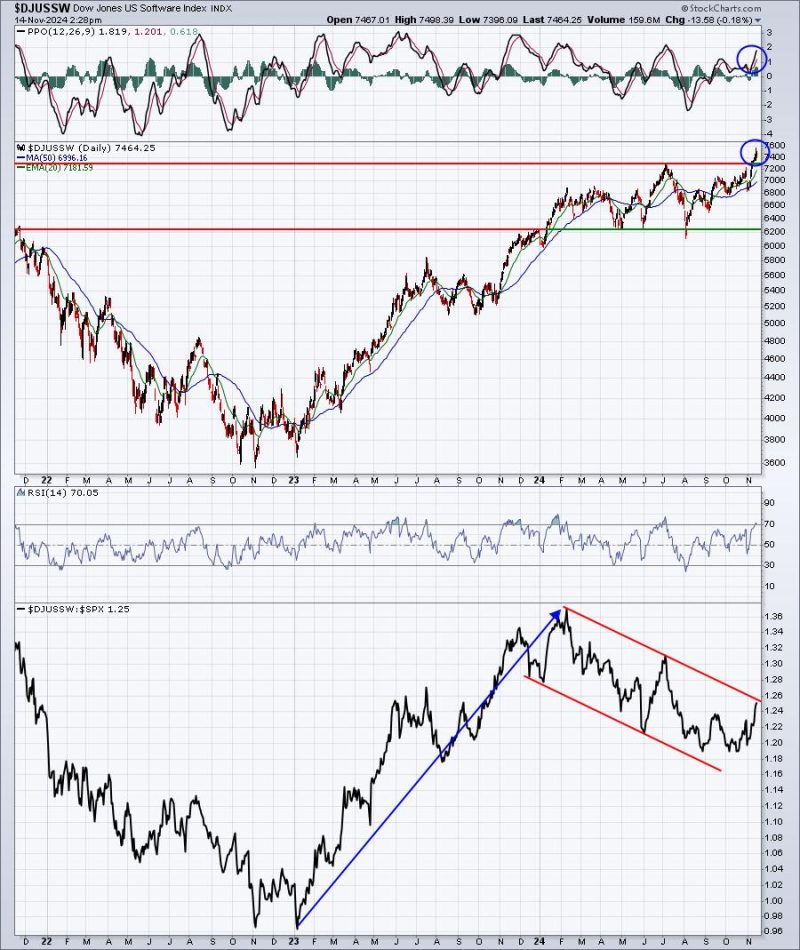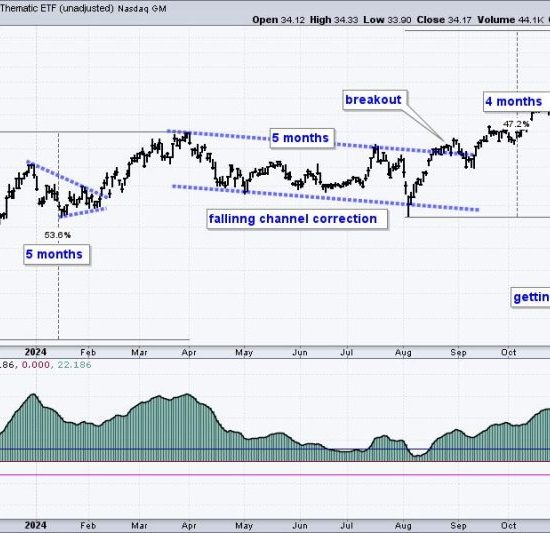Body:
Over the past few years, the technology industry has continued to demonstrate a rapid and impressive growth trajectory, distinguishing itself as a transformative force on Wall Street. Its innovation, dynamism, and forward-thinking approach have made it surge ahead, joining the ranks of other dominant sectors such as healthcare and consumer staples. However, the technological industry has recently outpaced other sectors, redefining its role and establishing a new high in the U.S. equities market.
One significant signal of this ascent is the remarkable performance of tech stocks. The S&P 500 Information Technology sector has witnessed a notable upswing, significantly outpacing the broader market and shattering investor expectations. Google parent Alphabet and Microsoft have etched new records, while Apple and Amazon are also reinforcing the sector’s position with their robust performance.
The tech industry’s breakout is attributed to a number of factors. For starters, the global pandemic has necessitated a swift digital adoption across multiple areas of our lives – from remote work and online education to telehealth and ecommerce. As a result, technology companies that offer digital solutions have registered exponential growth, positively impacting the U.S. equities market.
Moreover, continuous advancements in areas like artificial intelligence, machine learning, cloud computing, and cybersecurity are driving an investment boom. Companies pioneering these technologies are reaping the benefits in the form of higher valuations, solidifying the tech industry’s role as a market leader.
Furthermore, enticing financial results reported by tech giants, such as the FAANG group (Facebook, Amazon, Apple, Netflix, and Google), have ignited heightened investor interest. These strong financial results reflect not only the industry’s strong performance, but also its potential for sustained growth and profitability in the future.
In addition, policy support has played a crucial role. The Federal Reserve’s low interest rates have provided a conducive environment for technology stocks to flourish, making future streams of earnings more valuable, driving up their present value, and fostering a healthy environment for investment.
While we celebrate the tech industry’s upbeat performance, we must also remain mindful of its challenges. Increased regulatory scrutiny, potential anti-trust actions, and the debate surrounding data privacy are some of the major risks that could temper the optimism surrounding the tech industry.
However, the recognition of these challenges implies that companies within this industry are cognizant of the hurdles. This awareness could inspire companies to address these issues proactively, thereby bolstering the tech industry’s resilience and long-term performance.
In conclusion, as the tech industry continues to redefine boundaries, its breakout signifies a promising shift in U.S. equities. It elevates the sector as a strong indication of the robust direction in which U.S. equities are heading. Evidently, technology’s stellar performance reflects not just the industry’s vigour, but also underlines the growing significance of digital transformation and innovation in our economy today.
Despite the challenges that lie ahead, the tech industry’s capacity to adapt, innovate, and overcome hurdles cannot be underestimated. As the industry continues to advance on its trajectory, it is setting the stage for a stronger, more resilient, and innovative equity market in the U.S.




